KCL revoke Sultan of Brunei honour over gay stoning law
- Published
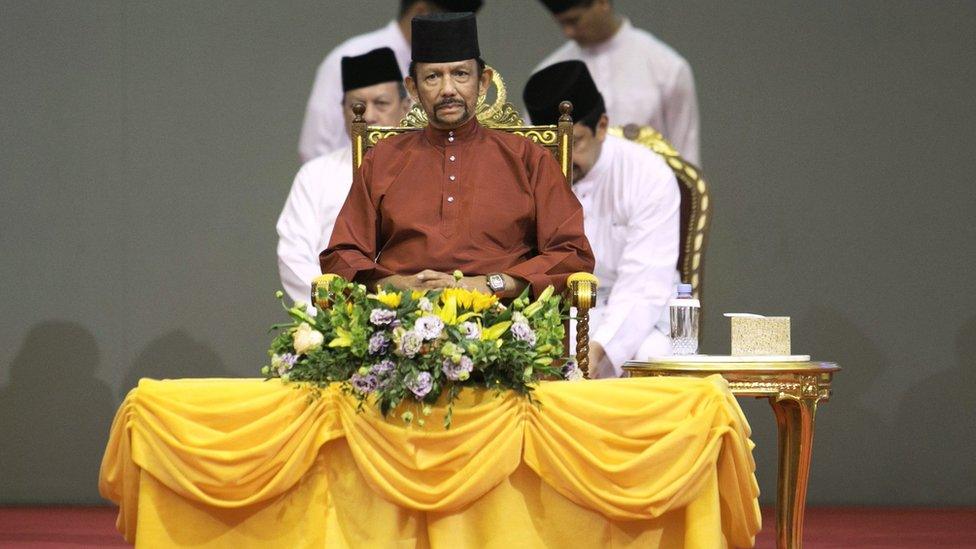
Brunei"s Sultan Hassanal Bolkiah
King's College London (KCL) have revoked the Sultan of Brunei's honorary doctorate, after his country made gay sex punishable by stoning to death.
Strict new Islamic laws came into force in April in the south-east Asian nation, advocating punishment for theft by amputation.
The move has sparked international condemnation.
A university spokesman said the new law "contradicts the values and freedoms we uphold at King's".
In a statement KCL said: "The willingness of the Sultan of Brunei to inflict death by stoning and other egregious penalties upon individuals in Brunei simply because of who they are or whom they love provoked real anguish within our community."
The award to Sultan Hassanal Bolkiah was made in 2011 for his "commitment to higher education".
King's LGBTQ+ Staff Network wrote an open letter, external demanding immediate action from the university.
Following the implementation of the new penal code, the university began a formal review of the award, which the Sultan was invited to respond to, KCL said.
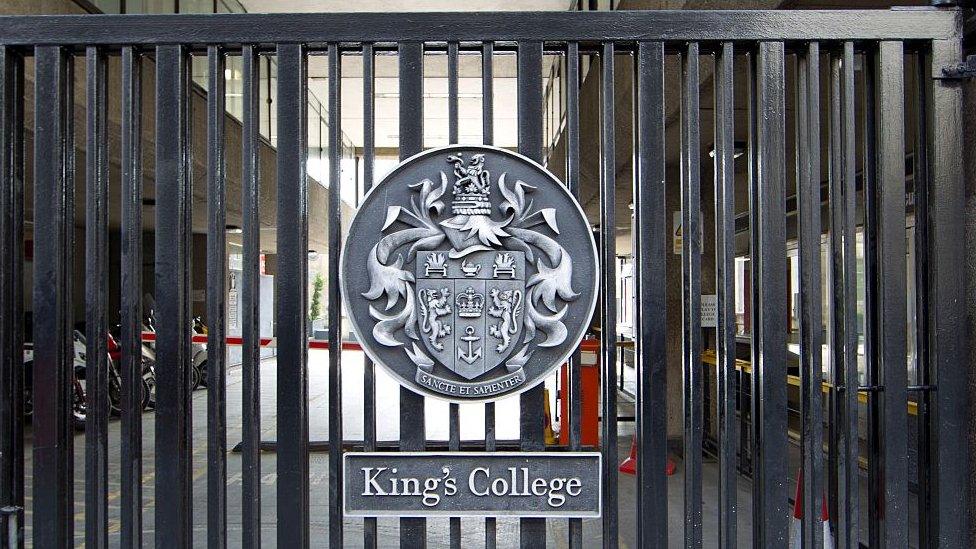
King's College London revoked the Sultan of Brunei's honorary doctorate after a review
Homosexuality was already illegal in Brunei and punishable by up to 10 years in prison.
The country first introduced Sharia law in 2014 despite widespread condemnation, giving it a dual legal system with both Sharia and common law.
The full Sharia penal code was fully implemented on 3 April.
But a month later the Sultan backtracked, and said the country won't enforce the death penalty for gay sex.
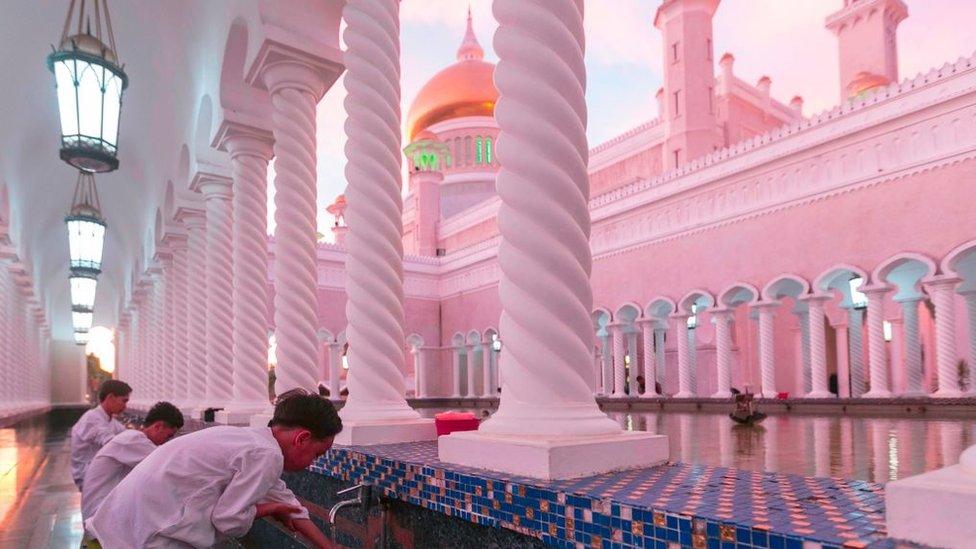
Brunei said it would introduce death by stoning to deter "acts that are against the teachings of Islam"
Lesbian sex carries a different penalty of 40 strokes of the cane and a maximum of 10 years in jail.
Stonewall called the situation "extremely concerning".
Celebrities including George Clooney, Sir Elton John and Ellen DeGeneres have voiced opposition and called for a boycott of nine hotels with ties to the Sultan.
- Published3 April 2019
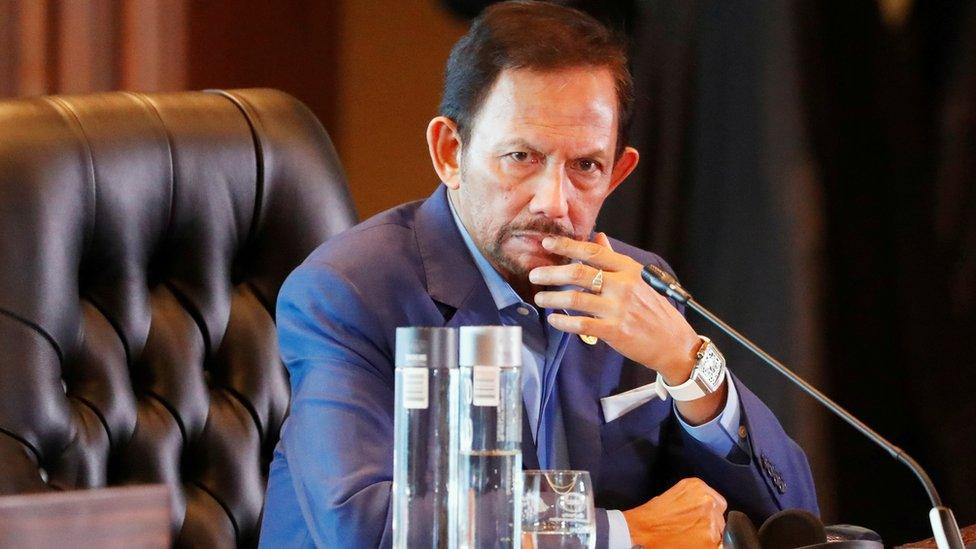
- Published3 April 2019
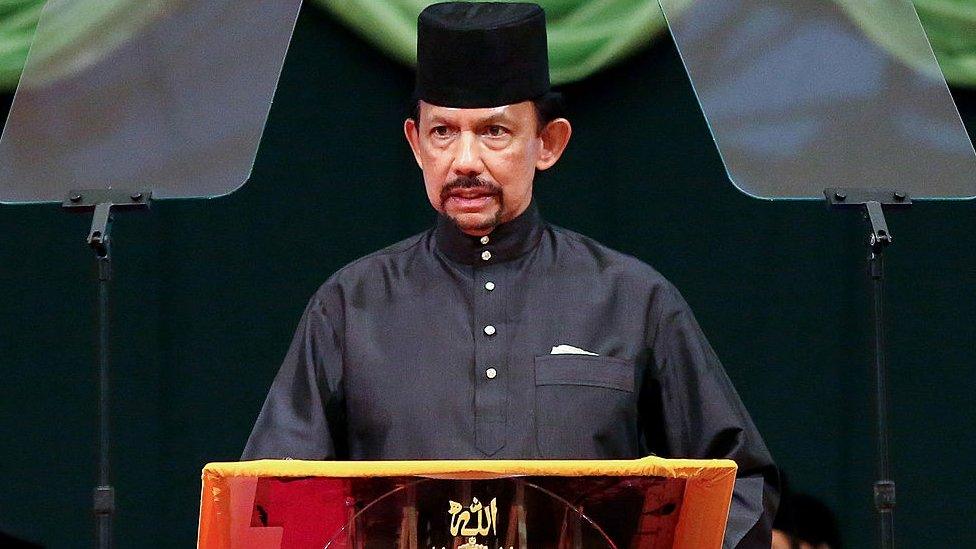
- Published29 March 2019
